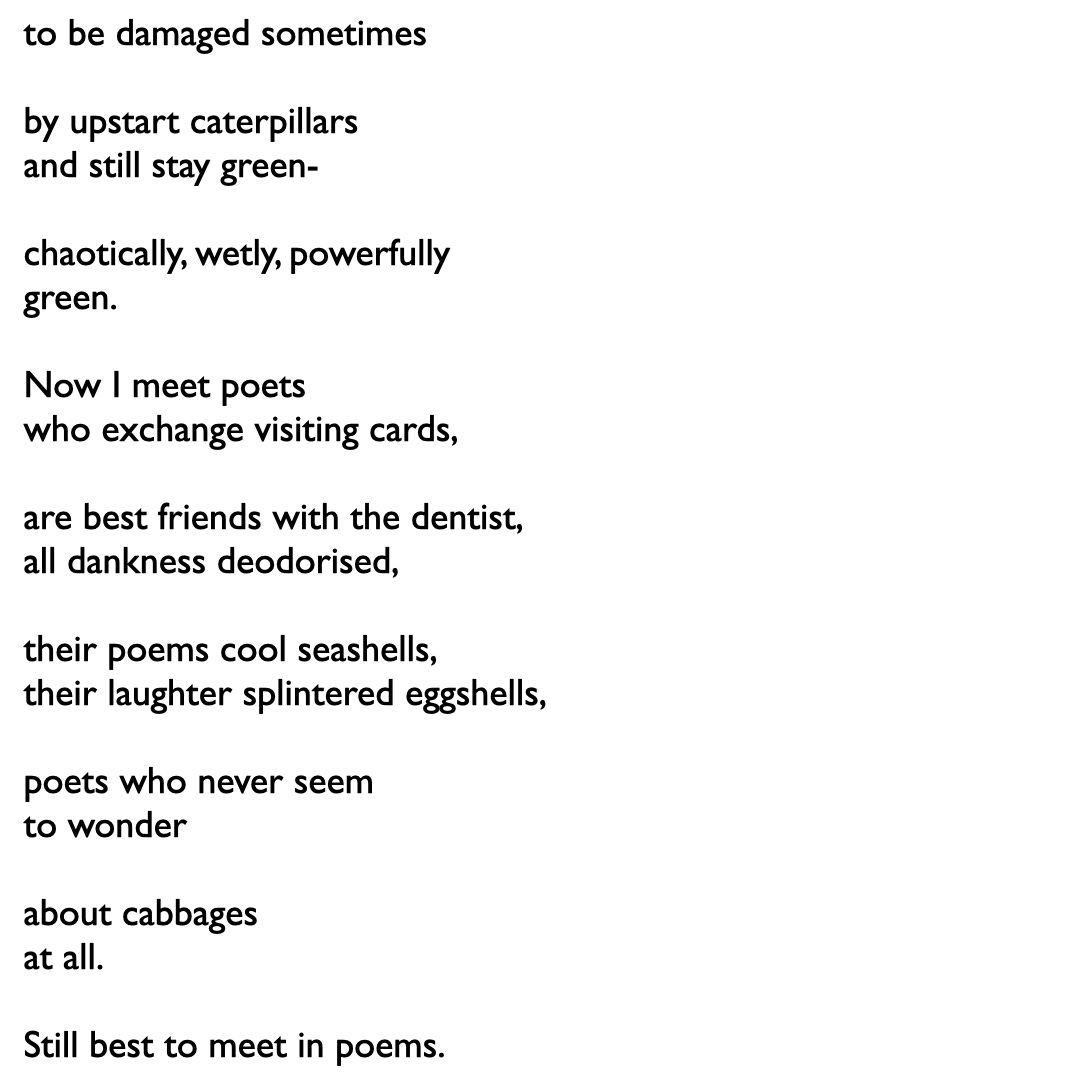I learned about the #SealeyChallenge some time back only after it was too late to start it (apparently August is the designated month for this poetry reading exercise). I saw many poets sharing images of whole collections of poetry that they’d read in a single day, every day, for thirty days. I saw that one of my favourite newsletter curators had also taken on this challenge - ‘The Alipore Post’. Essentially, the #SealeyChallenge is an intense poetry reading exercise - where you read 30 collections of poetry in 30 days (a poetry collection a day for a month). While it was too late to start, I thought I’d do my own version of this, not sharing publicly what I read, but using the opportunity to engage intensely with many works that were drumming against the door of my ever-growing ‘to read’ list.
Arundhathi Subramaniam’s ‘Love without a Story’ was at the top of my list of books bought, read on purchase, and never returned to. I remember, particularly, a poem of hers that I read and cherished in the brilliant anthology of love poetry that she curated along with Jerry Pinto - ‘Confronting Love’ (I have shared poems from here in the past - an excerpt from Dilip Chitre’s ‘Traveling in a Cage’, Vikram Seth’s ‘Prandial Plaint’, E.V. Ramakrishnan’s ‘Love as Research’).
When I read the title of the first poem in the book, I was hooked. The epigraph is from a beautifully sardonic Eunice De Souza poem ‘Meeting Poets’ that I have also shared on Poetly before. It is a poem that I return to often, making sense of creative souls, their work and their personas. Subramaniam’s poem dialogues with De Souza’s, of course, but opens up an intimate and reflective space, that offsets changing cultures and characters of creation. It made me think of poets as mentors, as role models, as vulnerable people, as real people, even as people whose poems obscure and deceive, rather than unclasp. I have always wondered about the distance between an artist and their work, and how colourful or ‘dank’ that crevasse is. It made me think of the meaning of what it means to call oneself a poet today, and how different (or similar) were the ‘older generation’. The poem is addressed by a vulnerability and an uncertainty that is endearing.
There are no finalities in Subramaniam’s writing, only gentle questions. Her poetry emerges out of a language of great economy. She spends words with precision, like the average Indian vegetable bargainer, making sure that there is always dhaniya mirchi left over.
In fact, one is left with a universal ‘self-doubt’, uncertainty, intensity and sensorial wonder; a world that is written lyrically into what is ‘left over’. The title of the collection - ‘Love without a story’ - makes me think of this. What is left over? With many images pressed between the pages of this glorious collection, I was reminded of an impulse often had, as a child while watching films - What happens after the cut? before the next scene? It felt as if the poems were laying bare some of these moments that lived in the interstices. I felt connected, and ‘let in’.
There are many sparkling poems I want to share from this collection, and many more chaotic musings, but I want to spend more time with them. For now, lap this up.
To get regular little offerings of poems and their ‘stories’ in your inbox, subscribe to Poetly




